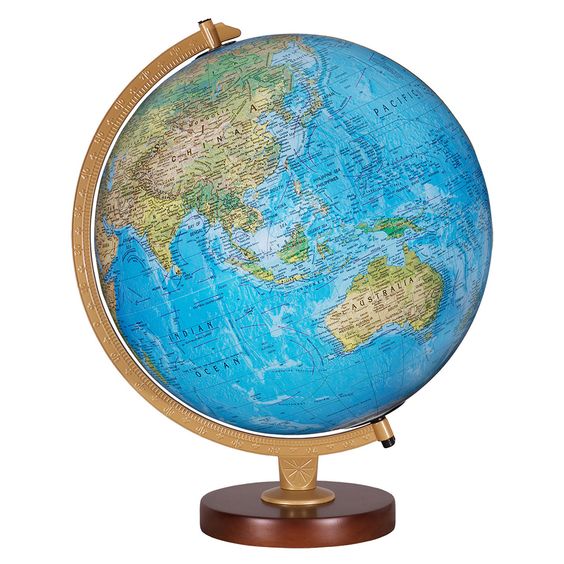
The possible consequences of the likely Israeli reaction to the attack by Hamas are terrifying
By Tom Arms
Too often the choice facing international decision makers is not between good and bad but between bad and worst. In the Middle East, at the moment, it appears to be between worst and much, much worse.
The possible consequences of the likely Israeli reaction to the attack by Hamas are terrifying and potentially global in their impact.
Let’s start with Israel itself. The overwhelming majority of Israelis are calling for massive retribution for an assault which left 1,300 dead, 3,300 injured and 150 held hostage in underground Hamas dungeons. It would be difficult for any Israeli government to ignore the public demands. For arch-conservative Benjamin Netanyahu it is nigh impossible.
 Prime Minister Netanyahu has formed an emergency government of national unity. He has also called up Israel’s 350,000 reservists who will be added to the 150,000 Israeli troops on active service. The bulk of this force are already massing on the Gaza border waiting for the whistle to launch a ground offensive.
Prime Minister Netanyahu has formed an emergency government of national unity. He has also called up Israel’s 350,000 reservists who will be added to the 150,000 Israeli troops on active service. The bulk of this force are already massing on the Gaza border waiting for the whistle to launch a ground offensive.
There will also be major deployments on the borders with Lebanon and Syria to prevent Hezbollah from joining the fray. And in the West Bank to control Palestinians there.
Israel has already imposed a total blockade of Gaza. No food, water, energy, medicine or any goods of any kind are allowed
Massive and painful Old Testament style retribution appears inevitable. But what detailed form will it take and how will the world react? Gaza has been subjected to Israeli ground offensives and occupations in the past. These have resulted in a temporary reprieve. But each has been costly in military lives and cash expended. Neither has solved the long-term problem. Successive Israeli governments have failed to grasp the fact that oppression is not a long-term security solution.
This Israeli offensive is likely to be different. Already they have imposed a total blockade of Gaza. No food, water, energy, medicine or any goods of any kind are allowed into one of the most densely populated and impoverished strips of land in the world. A million residents in the northern half have been warned to immediately move to the southern part of Gaza, and all Gazans have been advised to leave their homes.
But they have nowhere to go. Their only other land border is with Egypt which has refused them asylum and has worked with Israel to enforce a long-term blockade. The possibility of “ethnic cleansing” or “genocide” is very real. How the world reacts could result in fearful consequences.
For a start, there are the Arab countries. Until this past weekend Saudi Arabia was on the cusp of signing up to the Abraham Accords which so far includes the UAE, Bahrain and Morocco. That has been shelved. A Saudi foreign ministry statement following the Hamas attack basically said, what do you expect? If you treat people like animals, and remove all hope, they will act like animals.
Gaza has been subjected to Israeli ground offensives and occupations in the past
US Secretary of State Anthony Blinken is currently touring the Middle East in a desperate attempt to shore up the Abraham Accords. The problem with the accords is that they are one of the main catalysts for the Hamas invasion. By normalizing Israeli-Arab relations without addressing the Palestinian cause they effectively abandoned the two-state solution agreed in the 1993 Oslo Accords and ignored the plight of the Palestinians.
Hamas has shouted to the world that they refuse to be forgotten. There are many in the Arab world and beyond who agree with them. The governments see economic and political advantages in normalizing relations with Israel, but the wider Islamic public is very much behind the Palestinian cause and the government’s failure to recognize this could de-stabilize important Arab countries.
Iran, of course, is four-square behind Hamas. It may not have pushed the button that launched the attack on Israel, but it trained and equipped the forces. Netanyahu has for years been calling for a pre-emptive strike to destroy Iran’s nuclear capability. Any attempt to “solve” the Hamas problem must by association involve eliminating Iranian support for the Palestinians.
Israel is an untamed American Middle East proxy
On the other side of the diplomatic equation, President Joe Biden made it clear in an emotional speech that the United States stands four-square behind Israel. This position has the full support of the opposition Republican Party, but there are some cracks in the president’s Democratic Party. The latest opinion polls show that a clear majority of Democratic voters support Palestinian rights. Pro-Palestinian demonstrations have broken out on American university campuses. Their views are strongly represented in Congress by Democrats Ilhan Omer and Palestinian-American Rashida Tlaib.
Does American full support extend to virtual genocide in Gaza? If so, what affect would that have on the Democratic Party, the Abraham Accords and America’s wider role in the world? Israel is an untamed American Middle East proxy. Without the $3.8 billion a year that Washington gives Israel the Jewish state would cease to exist. It is American weapons that will be used by Israeli troops deployed in Gaza. Israel’s actions reflect back on Washington and will affect how the rest of the world acts towards America.
Europe will also be shaken. Brussels and London usually follow the American lead on the Middle East. And, true to form, the two capitals quickly issued statements supporting Israel’s right to defend itself. Britain, Spain, Italy and France have also increased weapons supplies to Israel.
But there are serious cracks within Europe on how far its support extends. The EU is the Palestinians biggest source of humanitarian aid. Oliver Varhelyi, the pro-Israeli Hungarian commissioner responsible for that aid, announced after the attack that the EU was stopping all relief to Palestinians. This resulted in howls of protest from European capitals and the European parliament. Varhelyi was forced to rescind the announcement. The EU will support Israel—up to a point.
It is American weapons that will be used by Israeli troops deployed in Gaza
Finally, there is Ukraine. Volodomyr Zelensky this week made a surprise visit to NATO to appeal for more weaponry. His counter offensive has failed to breakthrough Russia’s three-line defense and Putin’s men have now launched their counter to the counter-offensive. Republican right-wingers are holding up American aid to Ukraine on financial grounds while—ironically- calling for increased aid to Israel. The fact is that America and Europe will find it difficult to supply weapons for two wars.
The decisions made by the Israeli government in the next few days will affect the Gazans and the Palestinian cause, the future of the state of Israel, the Abraham Accords, relations between the US and the Arab world, internal divisions within the US, relations between the US and the wider world, relations between Europe and the US and Europe and the Middle East and much else which this article has failed to foresee.
 World Review
World Review
Lest we forget in the turmoil of the Middle East, there is an important war being fought in Eastern Europe. Russia has launched what appears to be a counter to the Ukrainian counter-offensive. Bitter fighting has been reported around the town of Avdiika. Volodomyr Zelensky has said his men are holding their own, but it should be acknowledged that the Ukrainians have suffered heavy losses in their summer counter-offensive.
One of Ukraine’s biggest concerns is keeping the lights on. The Russian-controlled nuclear power plant at Zaporizhia supplied 48 percent of Ukraine’s energy needs. A significant chunk of the remainder of Ukraine’s electricity network was knocked out last winter by Russian missile and drone attacks. Much of it has been patched up in a fashion that would do Heath Robinson proud. But Ukrainians fear that their patched up energy infrastructure will collapse under another attack this winter. President Zelensky visited NATO HQ again this week to appeal for more air defences and jet fighters. One positive factor on the energy front, is that Ukraine is now plugged into the wider European grid, but that still does not supply all of its needs.
Meanwhile, general relations between the West and Russia are expected to take another knock next week when the Russian Duma votes on whether withdrawal from the Comprehensive Nuclear Test Ban Treaty. The vote is widely expected to be a resounding yes. The Russians have already withdrawn from the INF Treaty, START and New START (Strategic Arms Reduction Talks) and the Comprehensive Weapons in Europe Treaty. The test ban treaty is the last agreement to be scuppered in the mosaic of Cold War and post-Cold War treaties.
While the Russian parliament is voting, NATO will be conducting its annual nuclear exercise codenamed “Steadfast Noon”. It involves fighter jets capable of delivering nuclear weapons, although no such nukes will be on the planes. The exercise will be conducted over Italy, Croatia and the Mediterranean. Russia has already objected.
Poland is on the political knife-edge this week as it prepares to go to the polls on Sunday. The stakes could not be higher. Opinion surveys put the ruling right-wing PiS (or Law and Justice) Party ahead, but without enough votes to form a government. Nipping at its heels is Civic Coalition, led by liberal centrist Donald Tusk, a former Polish Prime Minister and president of the European Council.
If PiS wins an overall majority—or is able to form a coalition with even more right-wing parties—then it will be their third successive government. This means that many of the policies that they have enacted will be almost impossible to reverse. These include a virtual ban on abortion, politicization of the judiciary, increasing control of the media and academia and a curb on LGBTQ rights. Most recently the PiS leader Jaroslaw Kaczynski announced that Poland was stopping military aid to Ukraine because it needed to restock its own weapons store.
The campaign has been bitter. PiS is especially known for its anti-EU and anti-immigrant stand. Tusk has accused them of wanting to withdraw from the EU which represents “freedom, the rule of law and the fight against corruption. He said Kaczynski’s party wanted to “brainwash” Poles “just as the Nazis and Communists” had. The PiS, has in turn accused Tusk of being an “agent of Brussels and Berlin.” Kaczynski described the opposition and Donald Tusk as “pure evil” that should be “morally exterminated.”
The PiS is popular with rural and elderly voters. The Civic Coalition garners it votes from urbanites and young people. The problem for the PiS is that it is blamed for everything that has gone wrong since it was first elected four years ago. This includes a visa bribery scandal, a perceived increase in corruption and the withholding of $37 billion in EU aid. On the plus side it has won popular support by lowering the retirement age, increasing child benefits and investing in Poland’s transport infrastructure.
America’s General Joseph Stilwell, aka “Vinegar Joe” was Chiang Kai-shek’s chief of staff during World War Two. The Chinese Communists have created a Stilwell Museum in the American general’s former home in Chungking and President Xi Jinping has recently started a highly-publicized correspondence with his grandson John Easterbrook.
The reason for the renewed interest in Vinegar Joe as that the American general hated Chiang Kai-shek. He called him “peanut”; accused him and his family of corruption, and most importantly, objected to the Kuomintang leader’s refusal to allow the communists to join the war against Japan and forced Chiang to permit an American observer mission to the wartime communist-held areas. Stilwell so angered Chiang that he demanded that President Roosevelt recall him in October 1944.
In the eyes of the Chinese Communist Party, Vinegar Joe is the historical representation of a “good American.” Which is why his revival is politically interesting. The Chinese have a long history of publicly sending coded messages. The invitation to the US table tennis team is a prime example. The public revival could be another way of Beijing saying that it wants to stop the sabre-rattling and improve relations with Washington.
_____________
 Tom Arms is foreign editor of Liberal Democrat Voice. His updated Enyclopaedia of the Cold War will be published next year and you can listen to his podcast “TransAtlantic Riff” by clicking here https://open.spotify.com/show/3ntjretAKNLZNFpA5ZEGDG
Tom Arms is foreign editor of Liberal Democrat Voice. His updated Enyclopaedia of the Cold War will be published next year and you can listen to his podcast “TransAtlantic Riff” by clicking here https://open.spotify.com/show/3ntjretAKNLZNFpA5ZEGDG